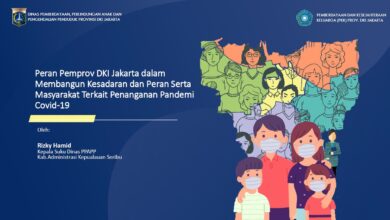
“The political moment is now” to address the climate risks posed by the aviation industry, analysts, insiders and campaigners say, as governments across the world weigh up bailouts for airlines grounded by the coronavirus pandemic.
Rescue packages need to come with green strings, such as reduced carbon footprints and frequent flyer levies, they warn, or the sector will return to the path that has made it the fastest rising source of climate-wrecking carbon emissions over the past decade.
Old passenger jets also need to be rapidly retired or cheap oil prices will encourage budget airlines to run services almost empty, which could push up emissions even if passenger numbers stay low, they say.
As did banks after the 2008-9 financial crisis, many aviation companies are appealing for government support to escape from a problem they partly caused. The expansion of flight networks, packed seating and a reluctance to accept quarantine measures have contributed to the rapid transmission of the Covid-19 virus across the globe.
Until the pandemic, governments were so focused on keeping airlines globally competitive that they largely gave the sector a free ride in terms of emissions cuts and contributions to public revenues. Aviation fuel is completely untaxed in most countries.
But the crisis has weakened airline claims that they should be treated as profit-seeking independent companies rather than public entities with social responsibilities.
Thousands of planes have been grounded for two months. Even if the lockdown is lifted soon, the industry expects revenues to halve this year. Many airlines are now begging for taxpayer support.
European governments have agreed €12.7bn (£11.35bn) in bailouts, with another €17.1bn under discussion, according to a tracker compiled by Carbon Market Watch, Greenpeace and Transport & Environment. The US approved $25bn (£20.6bn) support for the industry in April.
If public funds are used to save companies, there is a growing argument that society should get something in return in terms of environmental improvements.
Hopes were raised when the French finance minister, Bruno Le Maire, said Air France would have to become “the greenest airline in the world” in return for a €7bn bailout. This meant reducing the carbon intensity of their overall operations by 50% by 2030, cutting absolute emissions within France by half by 2030, using 2% renewable jet fuel by 2024 and drastically reducing the number of flights of less than 2hr 30mins duration that compete with rail services.
Although these conditions are currently non-binding, campaigners said they were hopeful they will be supported by new laws in the coming years.
Andrew Murphy, an aviation policy officer at the NGO Transport & Environment, said this could be a turning point after decades of inaction.
“Before the Covid crisis, aviation emissions were going in the wrong direction. This is a moment that has shaken up the industry and raised questions about subsidies, tax breaks, and frequent flying. It is an opportunity for governments to think how they support the airline industry.”
He said he was also encouraged the UK has not yet committed public funds to bail out airlines, which would gives them the incentive to put planes back in the sky too soon. A more important step, he said, would be for government to include aviation emissions in their climate targets. “It’s not sexy, but it’s very important,” he said. “Without this, nations’ climate calculations are based on dodgy accounting, as Greta [Thunberg] pointed out when she was in the UK last year.”
Some environmentalists such as George Monbiot argue airlines should not be rescued. This is echoed by Extinction Rebellion. “With 90% of UK planes grounded, and knowing we need to halt polluting industries, there can be no justification for the government to financially support restarting flights. Let’s embed this change rather than bail out this destructive industry and its tax-avoiding owners,” the group’s UK spokesperson, Sarah Lunnon, said.
Other climate campaign organisations, including Friends of the Earth and Greenpeace, say bailouts are only acceptable if they come with green conditions. They say airline companies should pay a fair share of taxes and not rely on offsets to reduce emissions, as they are currently doing.
Among the measures they propose are fuel taxes on domestic flights (which are currently tax free) and the introduction of a frequent flier levy. In the UK, 15% of people take 70% of flights. Globally, only 3% of the world’s 7.6bn population flies frequently.
“If governments want to address the twin challenges of Covid and climate change, the political moment is now,” says Dan Rutherford, aviation director at the International Council on Clean Transportation. “Policies to curb frequent flying could benefit both public health and the global environment.”
He said passengers should also be given information about the carbon costs of their flights, which would allow them to support more efficient airlines. The difference between companies can be as much as 80% on the same city-to-city flight depending on the type of aircraft, load factors and routes.
Even before the pandemic, the airline industry was feeling public pressure from “the Greta effect”, direct action by Extinction Rebellion and the high court decision to block Heathrow expansion because it posed unacceptable climate risks.
The Heathrow chief executive, John Holland-Kaye, said the UK should build back better after the Covid-19 crisis. “The government can accelerate the decarbonisation of aviation, by helping to scale up new energy sources, such as sustainable aviation fuels, just as they did successfully for solar and wind. Any company that is bailed out by the government should commit to net-zero emissions well before 2050.”
Passenger numbers at the UK’s largest airport fell by 97% in April, prompting hundreds of job losses and fears of many more to follow. British Airways and its parent company AIG did not respond to the Guardian’s request for a comment about their willingness to accept tighter controls on emissions.
The UK chancellor, Rishi Sunak, has said he will not treat the aviation industry as a special case, but might consider bailouts on a case-by-case basis.
Green party politicians say a clearer position is necessary to help workers in the sector to transition to other jobs.
“Whilst a reduction in flying will have a tremendously positive impact on the environment, we need to ensure jobs are created elsewhere for those currently working in the aviation industry,” the Brighton mayor, Alex Phillips, said. “This could mean, for example, that workers are either offered the opportunity to retire in dignity or to retrain in new sectors – whether they be in zero-emission transport or low carbon jobs that we are in need of both now and in the future.”
The issue is likely to linger long after the lockdown. The International Air Transport Association says demand for air travel will not recover until 2023 at the earliest.
Eight steps towards a cleaner aviation sector
- Reduce flights. Demand is unlikely to recover for at least three years so the simplest way to reduce aviation emissions is to have fewer planes in the air.
- Tax aviation fuel. Initially just for domestic flights so they do not have an unfair advantage against low-emission rail services. Air France has been told it cannot have a bailout unless it phases out flights that compete with train journeys of 2hr 30mins or less. This should later be widened to international flights, which are responsible for 90% of airline emissions in Europe..
- Introduce a frequent flyer levy. In the UK, 15% of people take 70% of flights. Globally, only 3% of the world’s 7.8bn population flies frequently. Increasing costs for them would make a bigger difference than asking people to end their annual overseas holiday.
- Provide transparent data on carbon emissions of flights so customers can avoid less efficient airlines. Few people are currently aware of the data, but the difference can be as much as 80% on the same city-to-city flight depending on the type of aircraft, load factors and routes.
- Incorporate the aviation sector into national climate targets. Currently the UK’s Climate Change Act only mentions airlines rather than making them part of the country’s emissions calculations, which Thunberg described last year as “extremely creative accounting”.
- Reduce fleet sizes by scrapping old, gas-guzzling planes. This would also reduce the risk that low petrol prices will prompt budget airlines to rent cheap planes and run them almost empty, which would keep them in business but increase emissions per passenger.
- Halt airport expansion. Campaigners won an important victory in February when the high court ruled against Heathrow expansion due to the climate risks. But many other airports plan to open new terminals and runways in the UK and elsewhere in the world.
- Invest in green fuel and tech. The French government has said Air France must use alternatives to fossil fuels for at least 2% of flights by 2024. Norway is pioneering electric planes and biofuel from waste products. Heathrow says the UK government should also promote cleaner fuel.
Artikel ini telah tayang di theguardian.com dengan judul “Aviation is struggling and seeking support, but there are demands for it to give something in return”, https://www.theguardian.com/world/2020/may/17/is-covid-19-crisis-the-catalyst-for-the-greening-of-worlds-airlines
Penulis/Editor : Jonathan Watts
Foto Cover : The aviation industry had been shaken by the coronavirus pandemic. Composite: Guardian design team



